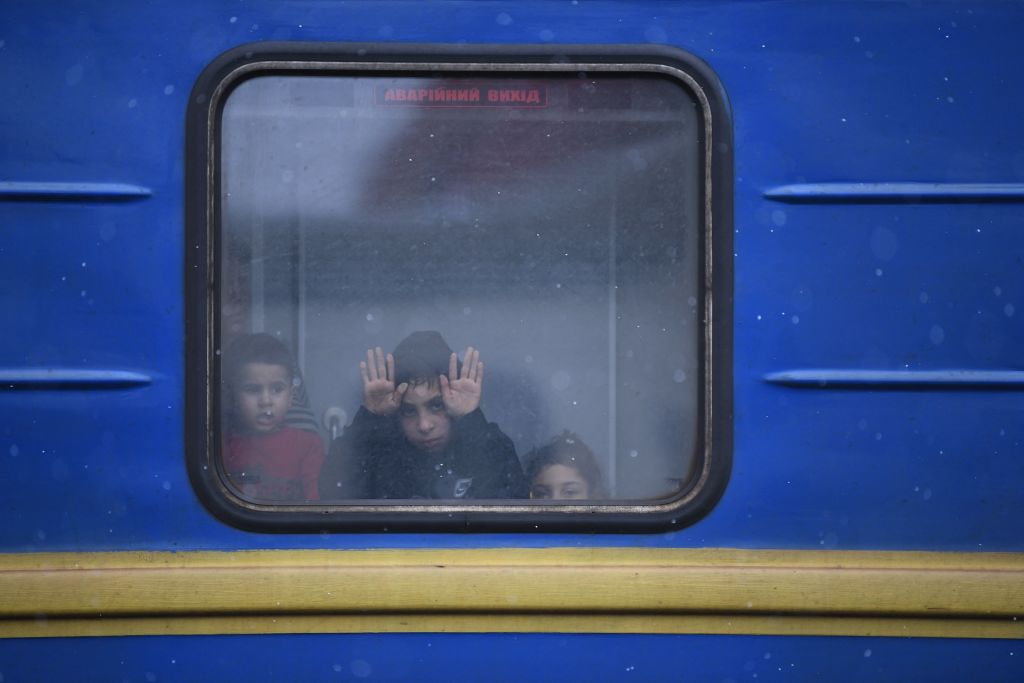Putin’s war and the mirage of the rules-based order

Russia’s invasion of Ukraine, and the West’s unprecedented response, represent a watershed in international relations, marking the formal end of the post–Cold War era and setting the stage for seismic geopolitical and geo-economic shifts. But one defining feature of international relations will remain: to paraphrase Thucydides, the strong will continue to do what they can, and the weak will continue to suffer what they must.
Leaders and observers around the world often speak of strengthening or defending the ‘rules-based international order’. But that order was always more aspirational than real. Countries that possess military or economic might reserve the right not only to make and enforce the rules, but also to break them.
It’s when the rule-makers disagree that the greatest risks arise. The Ukraine war—the first conflict of the post–Cold War period that pits great powers against each other—is a case in point. On one side, Russia has been carrying out a brutal conventional military assault on Ukraine, in an apparent effort to bring the country—which Russian President Vladimir Putin believes is rightly part of his country—back into the Kremlin fold. On the other side, NATO, led by the United States, has been waging a comprehensive hybrid war against Russia.
The West’s war has included the supply of huge quantities of weapons to Ukrainian forces: US President Joe Biden alone has authorised the transfer of US$1.35 billion worth of lethal weapons since the war began, with much more to come. The West has also implemented ever-escalating economic and financial sanctions, virtually expelling Russia from the Western-led financial order and sequestering the assets of many wealthy Russians. And it has sought to shape international opinion, with many countries now blocking access to Russian state media.
For all the talk of a rules-based order, the world’s rule-makers have reverted unhesitatingly to unilateralism. The risks are legion. The flood of weapons that the West is sending to Ukraine—a country with a long history of weak governance and widespread corruption—could eventually flow westward, fuelling organised crime, narcotics trafficking and terrorist violence across Europe. And the Iron Curtain’s revival may hasten the emergence of a militarily robust, neo-imperial Russia. Putin, who has called the Soviet Union’s collapse a ‘tragedy’ and the end of ‘historical Russia’, has indicated that Kazakhstan, like Ukraine, is not a country.
And it’s not just Russia that will become isolated. The Ukraine war could trigger the unravelling of decades of broader global economic engagement, long viewed as a key deterrent against great-power conflict.
Of course, the notion that countries would rather trade than invade has never been unassailable. Economic interdependence hasn’t stopped China, for example, from engaging in relentless expansionism, from the South and East China Seas to the Himalayas.
Even today, however, economic interdependence has forced rule-makers to exercise some restraint. Despite the raft of financial and economic sanctions it has imposed on Russia, Europe continues to support the Russian economy’s mainstay: oil and gas exports. This undermines the West’s own mission, especially as the confrontation drives up energy prices. But Europe’s longstanding dependence on Russian energy supplies has left it with no good alternatives—at least for now.
Such a trade-off may not arise in the future. The European Union has already vowed to eliminate its dependence on Russian energy by 2030. At the same time, countries that want to uphold trade ties with Russia are seeking solutions outside Western-controlled channels. For example, India is buying Russian oil with rupees. Similar moves elsewhere—for example, Saudi Arabia is considering renminbi-based oil sales to China—threaten to erode the US dollar’s global supremacy.
This is probably the beginning of a broader bifurcation of the global economy. At a time when economic power has shifted eastward but the West still controls the world’s financial architecture—including the main international payments system, the primary currencies for trade and financial flows, and the leading credit-ratings agencies—the establishment of parallel arrangements seems imminent.
China, which dwarfs Russia in terms of both economic power and military spending, will likely lead this process. In fact, China is set to emerge as the real winner of the NATO–Russia conflict. An overstretched America’s renewed preoccupation with European security will create strategic space for China to press its strategic objectives—its leaders have been as clear about absorbing Taiwan as Putin was about claiming Ukraine—and bolster its global influence, at the expense of the US.
Chinese global dominance would amount to the final nail in the coffin of the rules-based order. Since its establishment in 1949, the People’s Republic has displayed blatant contempt for international law, more than doubling its land mass by annexing Xinjiang and Tibet and currently detaining over a million Muslims. Yet China has paid no tangible price. The Kremlin, for its part, probably didn’t think twice about rejecting the International Court of Justice order to suspend its military operations in Ukraine.
International law may be powerful against the powerless, but it is powerless against the powerful. The League of Nations, created after World War I, failed because it couldn’t deter important powers from flouting international law. Its beleaguered successor, the United Nations, may be facing a similar reckoning. How can the UN Security Council fulfill its mandate of upholding international peace and stability if its five veto-wielding permanent members are arrayed into two opposing camps?
The world is headed for an era of greater upheaval. However it plays out, the pretence of a shared commitment to international law will be the first casualty.